A recent study by Mckinsey in 40 countries analyzed the changes in consumer behavior due to COVID-19 and showed that most people expect a reduction in their income and consequently in their spending on buying products (goods/services). Except for basic necessities and entertainment at home, where expenses are expected to increase, a significant drop is expected in the other categories. One of the categories, where consumer spending is expected to fall by up to 50%, is tourism and in particular international and national flights, cruises, tourist excursions, and hotel accommodation.
Tourism is a sector that contributes significantly to the Greek economy and is expected to be hit hardest this summer. Forecasts for incoming tourism are not favorable and for this reason, tourism businesses and organizations should focus more on domestic tourism. Summer holidays have always been an integral part of the Greek way of living and a period that everyone is looking forward to. The imposition of strict restrictive measures on the working and social life of our country due to COVID-19 is expected to change significantly this habit and to influence the behavior of Greeks concerning their holidays this summer. As the gradual lifting of travel restrictions (at least in the country) has just begun, an important question is whether Greeks will take a vacation this year and under what conditions? How will their tourism behavior be shaped by COVID-19?
The online research of the Marketing Laboratory MARLAB of the University of Macedonia attempted to answer these questions. The survey was conducted online during April 23-25, 2020 under the scientific responsibility of the Director of MARLAB, Professor, Ms. Rodoula Tsiotsou, and the research associate-members, Ms. Nicoletta Siamaga, Assistant Professor of Aristoteles University, and Mr. Achilleas Mpoukis, Lecturer at the University of Sussex. The research aimed to record the intentions and preferences of Greeks in terms of their summer vacation for this year and to capture the trends in domestic tourism for the upcoming summer. Here are some interesting results from this research. In general, we could say that are revealed the following key conclusions:
1. Almost half of Greeks (47%) are planning to go on vacation this summer, specifically in August (65%)
2. Greece is the main holiday destination for Greeks this year (90%) while hotels will be their main accommodation (46%)
3. Half of the Greeks (50%) state that they will spend the same amount of money on their summer vacation like last year.
Research Results
In the question, if they are planning to take a vacation this summer, 47% replied yes, 34% said they have not decided yet and 19% said no. The main reasons 19% of the sample will not go on vacation are due to lack of money (36%), due to COVID-19 (32%), and due to workload (22%).
90% of the sample selects Greece exclusively as a summer destination, 7% choose Greece and abroad while only 3% choose to take a vacation abroad exclusively. Regarding the time of their vacation, 25% said in July (20% in the second half of July), 65% will go on vacation in August and 10% said they would prefer September for their vacation. The duration of their vacation will be 4 days for 5% of the sample, 5 days for 17%, 6 days for 3%, 7 days for 14%, 10 days for 12%, 15 days for 9%, and 20 days for 4%.
In terms of accommodation, 46% will stay in a hotel, 14% in a friend’s house, 29% in a holiday or family home, and 19% in an Airbnb (two selections were available in this question). 41% of the sample stated that they will spend from 301 to 600 Euros per person for their summer holidays, 35% will spend up to 300 Euros, 15% intend to spend from 601 to 900 Euros while 8% will exceed 900 Euros per person. 50% think they will spend about the same amount of money as last year on their vacation, 33% will spend less money, 13% much less and only 4% intend to spend more money.
SAMPLE PROFILE: 840 people responded to the questionnaire, from which 31% were men and 69% women. In terms of age, 62% of the sample was between 20 and 40 years old, 34% was between 41 and 65 years old, and the remaining 4% was under 20 years old. 41% of the sample was married, 52% was single, 6% was divorced and 1% was widowed. In terms of income, 27% declared income less than 10,000 Euros, 34% between 10,001 and 20,000 Euros, 21% between 20,001 and 30,000 Euros, 11% between 30,001 and 40,000 Euros and the remaining 7% more than 40,001 Euro. The sample was nationwide, coming from 45 different prefectures in the country.
The results are available in Greek here (https://www.uom.gr/8068-ereyna-marlab-tha-kanoyn-diakopes-oi-ellhnes-fetos-to-kalokairi)
INDICATIVE PUBLICATIONS IN PRINT MEDIA
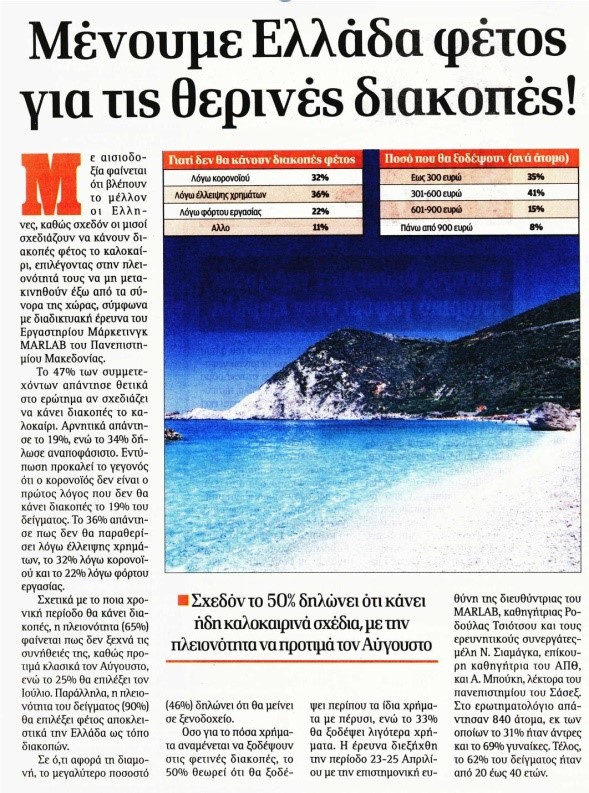
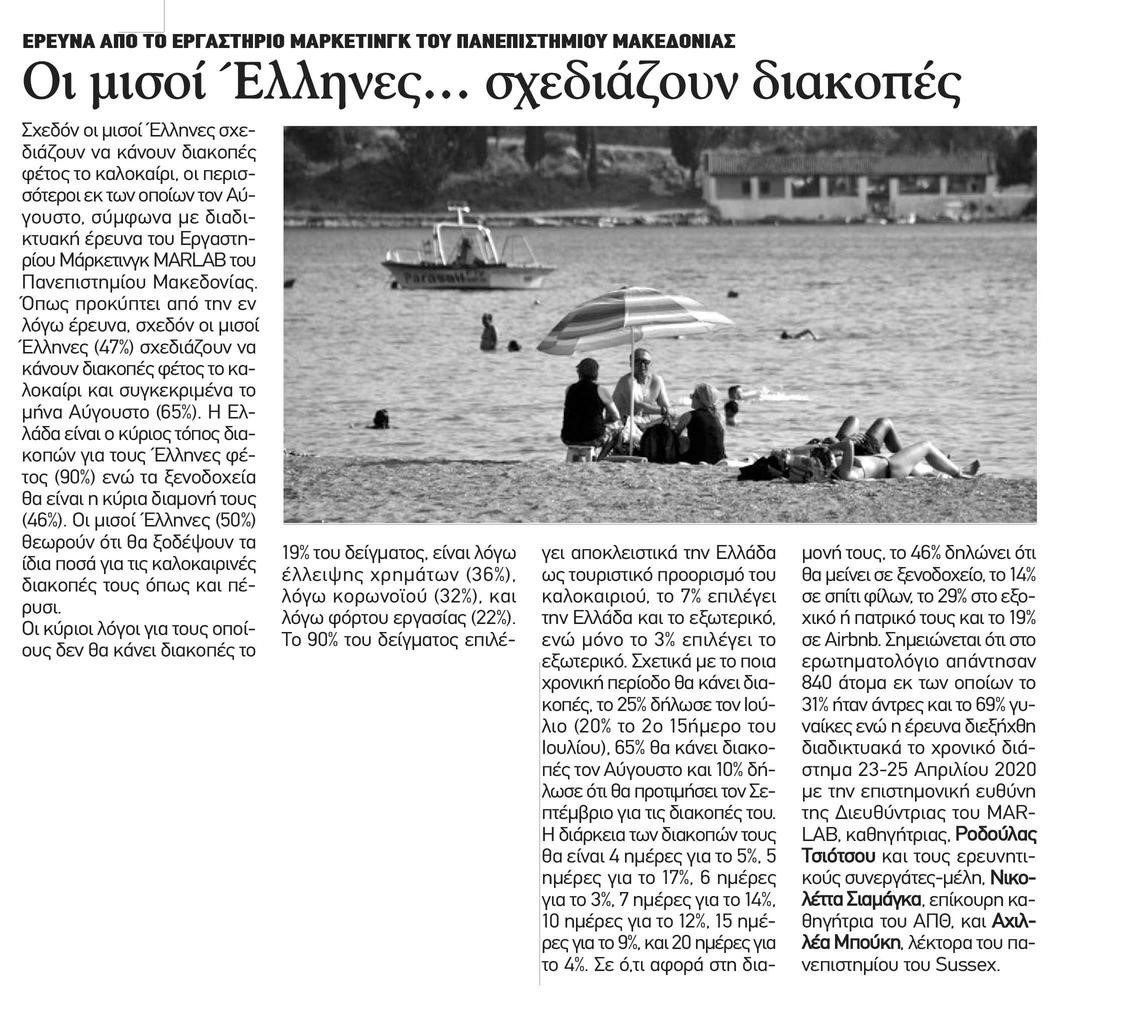
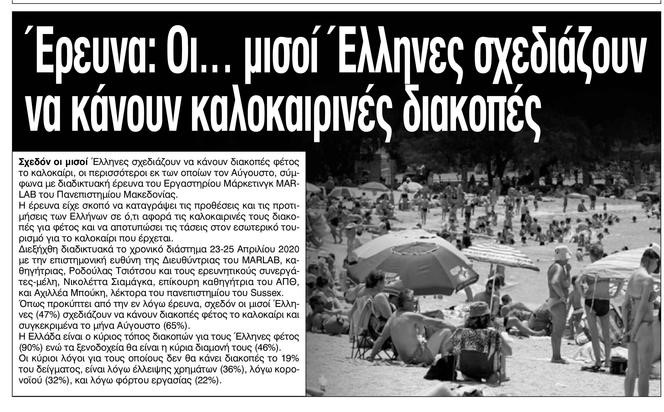
INDICATIVE PUBLICATIONS IN DIGITAL MEDIA
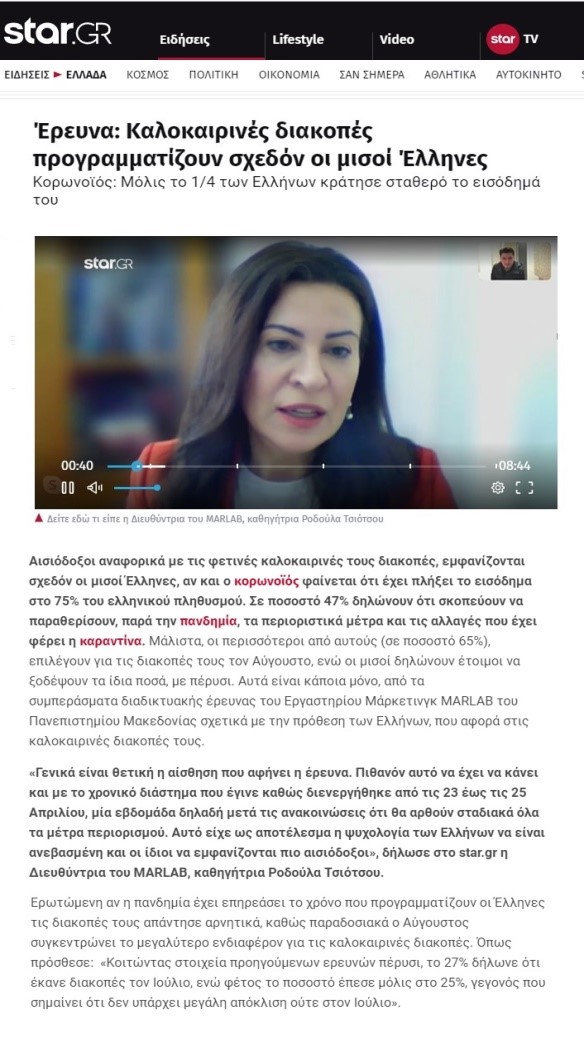
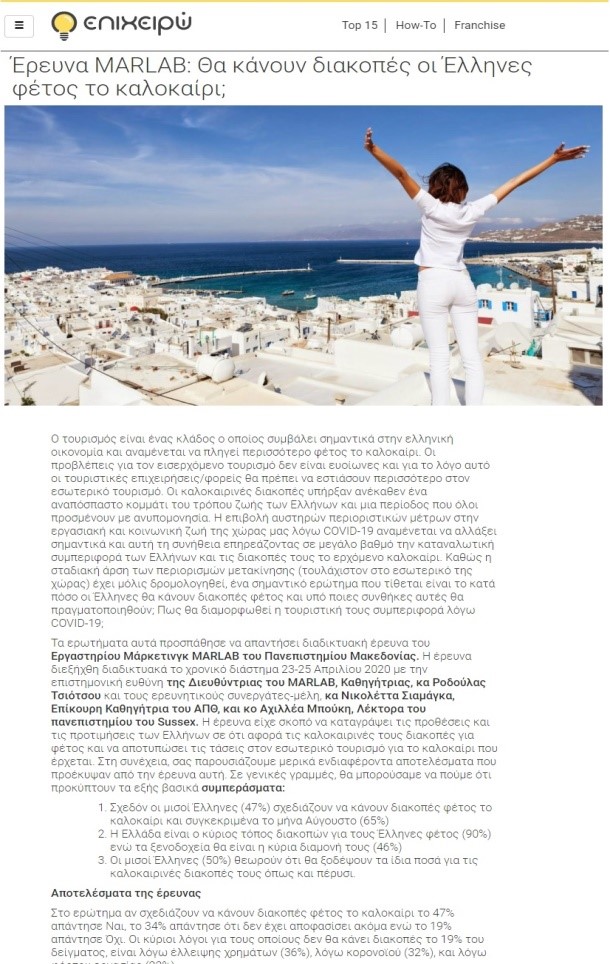
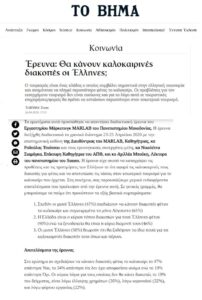
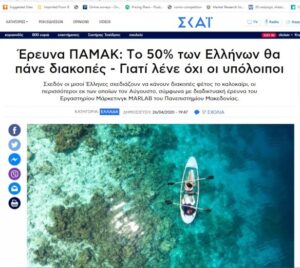
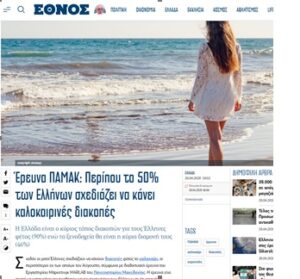
VIDEO OF INDICATIVE INTERVIEWS AND TV REPORTS (more videos are available on MARLAB’s YouTube channel)

